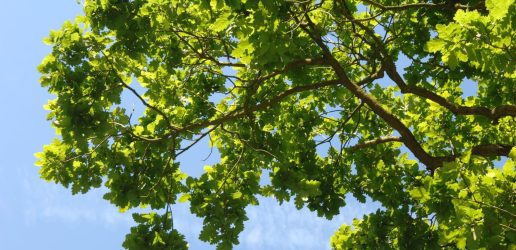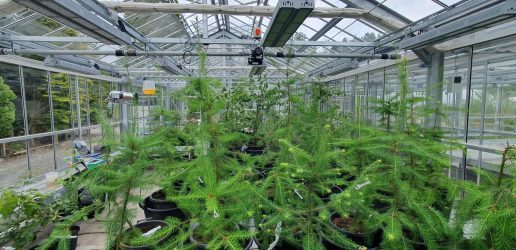During the first week of June, climate change adaptation experts from across Europe and the world, gathered in Glasgow for the 3rd European Climate Change Adaptation Conference. Over 850 researchers, policy-makers, and practitioners attended four days of talks, workshops and excursions. The conference aimed to explain the latest research and to bring together people who will deliver action on the ground – from business, industry, NGOs, local government and communities – to share knowledge, ideas and experience with leading researchers and policymakers.
Experts at the conference included scientists from Forest Research who explained how we can increase the ability of our woodlands to cope with our changing climate. Topics discussed included experience and lessons from integrating adaptation considerations into forest planning in the New Forest, learning from Queen Elizabeth Forest Park about co-producing resources to support adaptation, the resilience of forest management plans to climate and societal change, and decision-making options for robust climate change adaptation in forest management. The conference also offered inspiring ideas for forest adaptation, such as participatory modelling and new tools for adaptation. Forest Research and Forestry Commission Scotland displayed a case study in the Climate Ready Scotland Exhibition and hosted a joint Q&A session on adaptation in Scotland’s forest sector.
One of the highlights of the conference was a field trip to the Queen Elizabeth Forest Park in Argyll. During the excursion, hosted by Forest Enterprise Scotland and supported by Forest Research, delegates saw some of the adaptation activities being taken forward in the area. They discussed active forest management of riparian areas, productive woodland, wind-blown trees and the role of continuous cover forestry.
All the case studies from the Climate Ready Scotland Showcase are available on the Adaptation Scotland website.
Further information on Forest Research’s climate change adaptation work.
Related pages
Recent News
View All news
Woodland managers are invited to take part in a new project to protect the nation’s oaks
Join a webinar and in-person workshop to learn about monitoring and protecting oak trees.

Webinar: Observing and understanding oak health across the UK
An online webinar launching a new, practical oak-health monitoring system for woodland managers and volunteers across the UK.

Webinar: Understanding drought risk for UK woodland creation and forestry
Hear about new research on how rising drought risk is reshaping UK forestry and the tools being developed to support climate‑smart woodland creation.

Woodland managers are invited to take part in a new project to protect the nation’s oaks
Join a webinar and in-person workshop to learn about monitoring and protecting oak trees.

Webinar: Observing and understanding oak health across the UK
An online webinar launching a new, practical oak-health monitoring system for woodland managers and volunteers across the UK.

Webinar: Understanding drought risk for UK woodland creation and forestry
Hear about new research on how rising drought risk is reshaping UK forestry and the tools being developed to support climate‑smart woodland creation.
